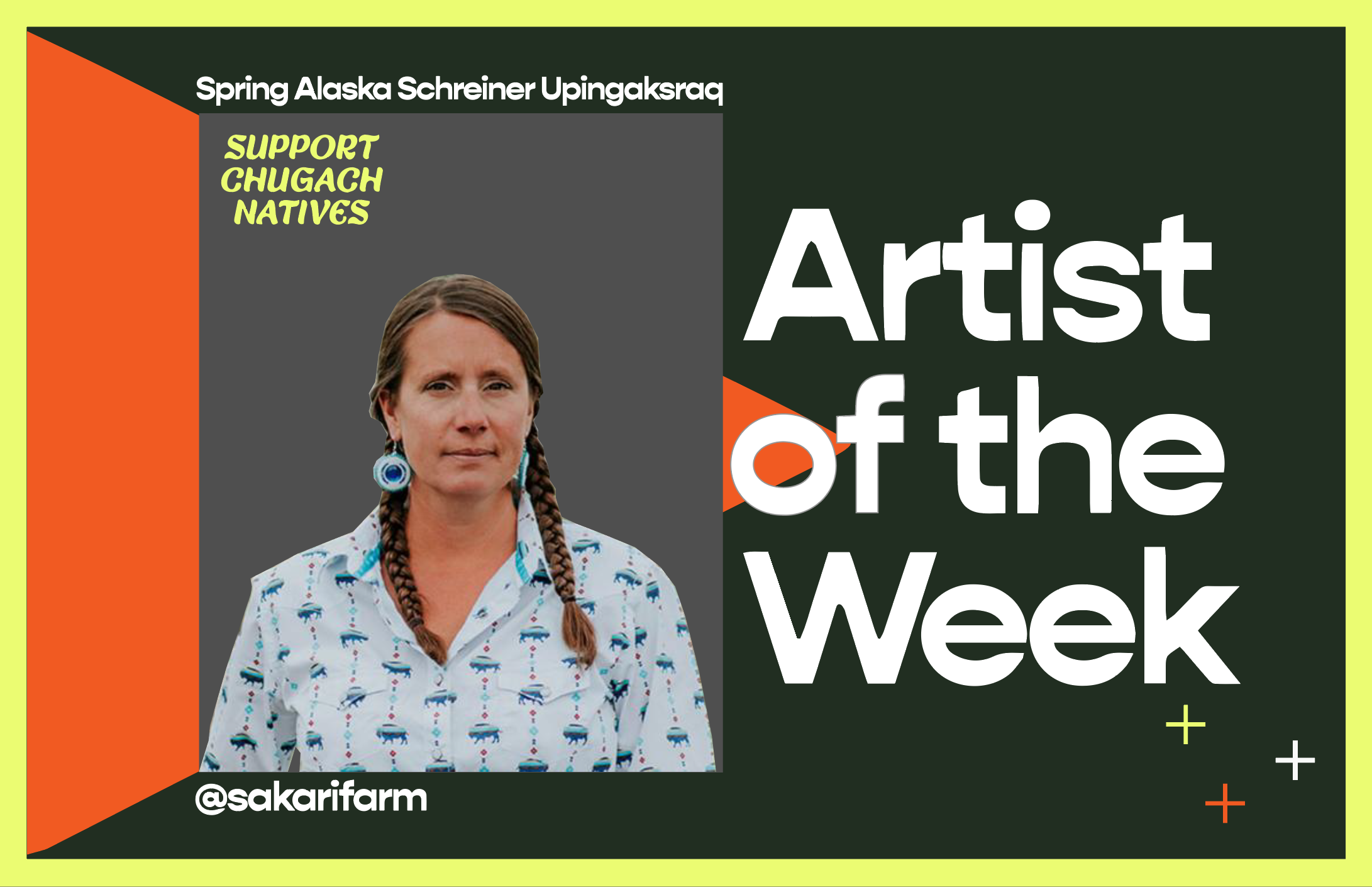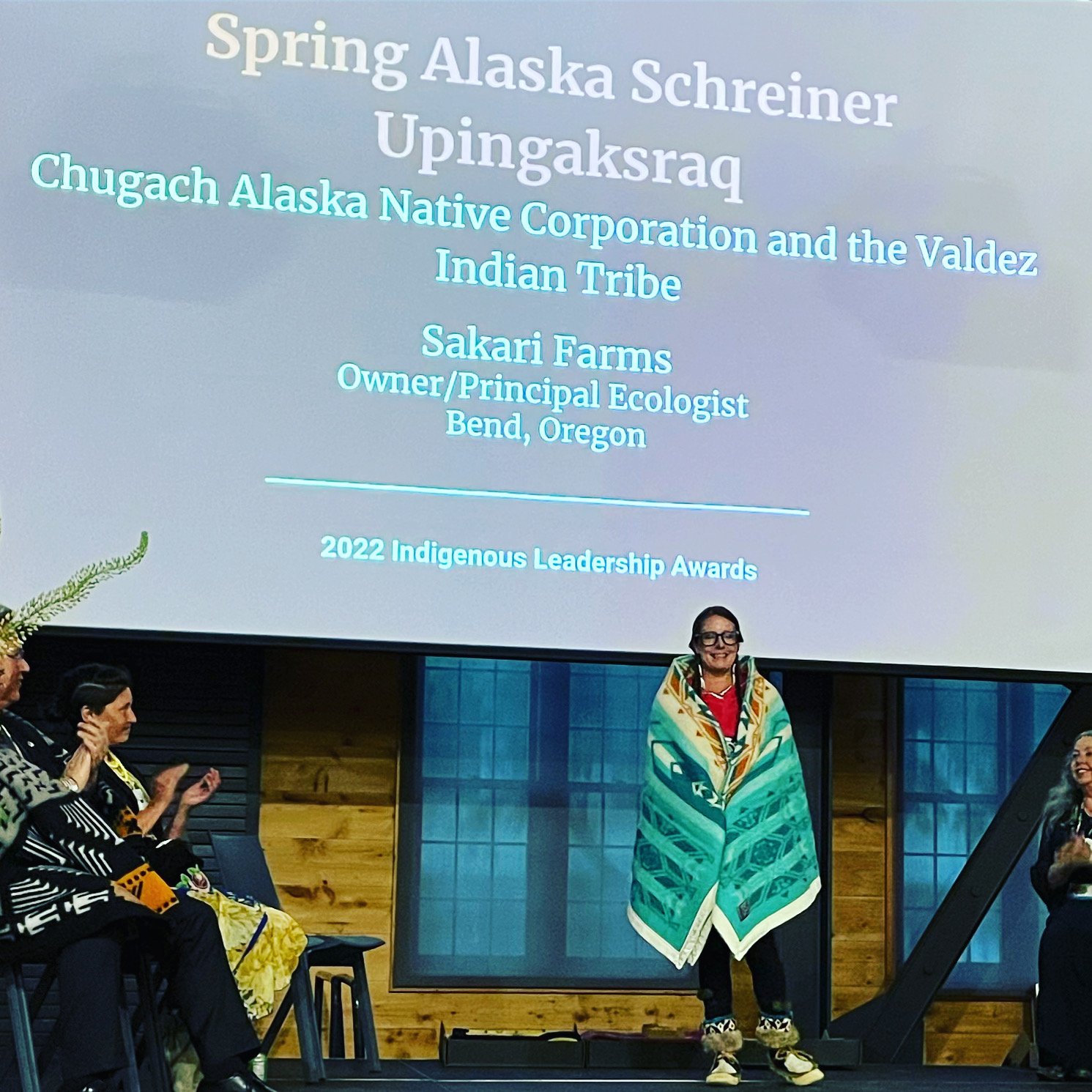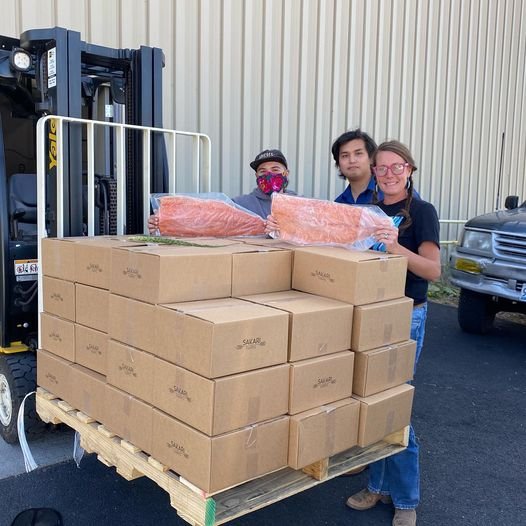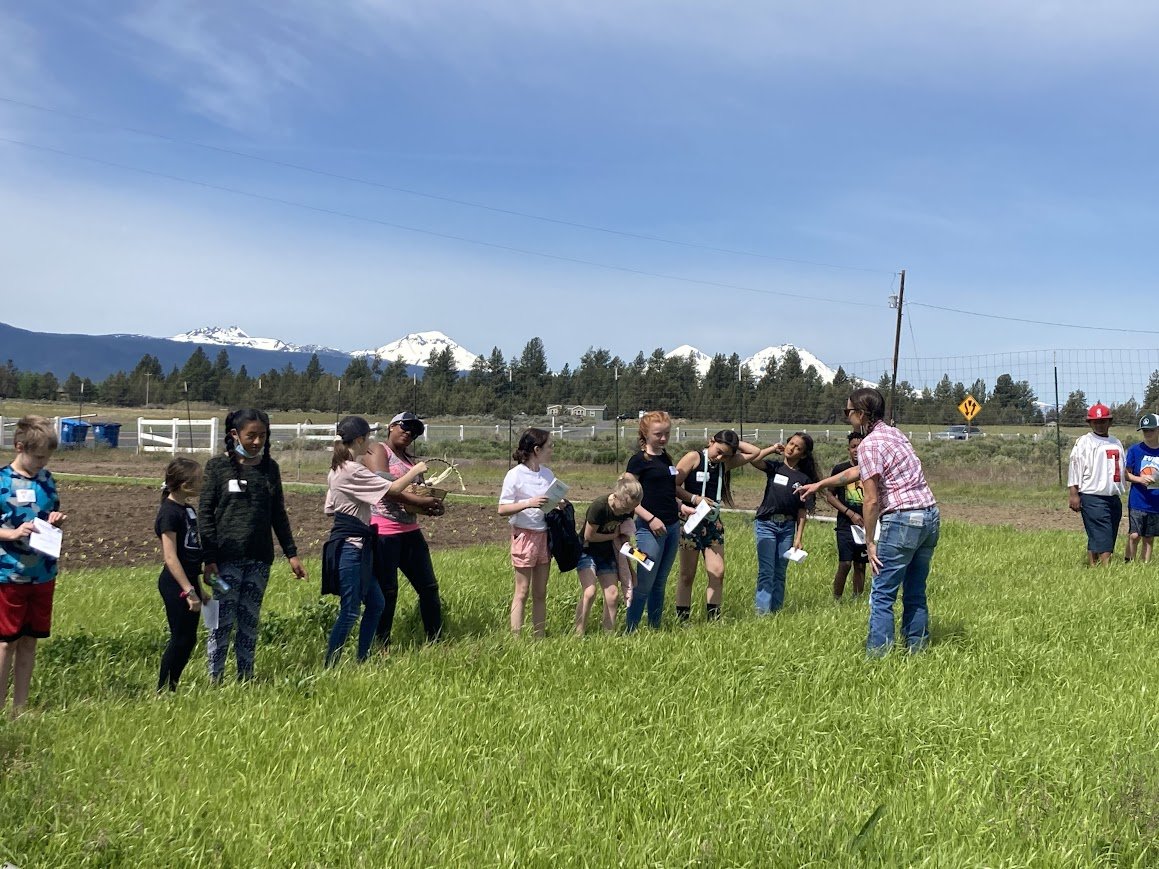Tribe: Inupiaq (Diomede Island/Nome) Valdez Native Tribe
Chugach Alaska Shareholder
1:How would you define food sovereignty?
Spring: Food Sovereignty is pretty simple, just having a voice and access to our food input- Where does it come from, How did it get there (salmon), Where is it going? Will it be safe on its food journey? Will it be cared for while growing? Is the water clean? Is there a safe space for it to grow and thrive? Who will benefit from it? (Animals, plants, humans).
I have more questions than answers, but that is the fun part- this allows me to always learn, and share, and that curiosity about the four directions and what role I play helps make all of us better consumers of that food system.
2: How does being Native Alaskan impact the work you do?
Spring: 100% impactful- We actually share common traditional foods with coastal tribes here in Oregon (Salmon, Berries, Cedar, Devils Club, Yarrow (medicines), etc. I always think about the work my dad (Helmer Olson (President of Valdez Native Tribe) used to do- Always working with that "intertribal hat" on and engaging, helping other regional tribes/villages in need. Our Alaskan Native people are very generous, and we are generous with our ability to help others and give and share food at the drop of a dime. I try to lead by example with all facets of my work and showcase how kind and generous our people are. Because we share similar traditional foods, the cultural/healing pathways are similar, and the respect for our animals and water tends to merge. This allows that special bond with other tribal members when we work together on climate issues, resource management policies, mental health advocacy, and all the other challenges we have as native people.
3: What makes growing food through a Native American lens different?
Spring: Creating Sakari Farms was a must for me, and I could not access my traditional foods here in Central Oregon (desert-like landscape). I also do not have subsistence rights in the lower 48, so sneaking around in the woods can only go so far with an overpopulation of non-natives always lingering. I started growing these foods (yarrow, berries, medicines, etc.) on a larger/healthy scale to feed myself and other tribal members in my region. Packaging up these food items with creative recipes, etc., has allowed me to share this food with other regional and national tribal members, increasing our traditional food input in a larger-scale effort. The benefits are keeping tribal money in tribal hands, increasing tribal economies by teaching other tribal members how to grow their foods and become more self-sufficient, and letting the general (non-native) public know we can lead the way in healthy food systems. Win-Win-
4: How can native foods help with health disparities?
Spring: This is a great question! Get back outside- breathing our fresh air, engaging in awareness of our climate/weather and surroundings, picking berries, fishing, gathering our foods. Completing the cycle of where our food comes from, preparing/preserving/sharing these foods is how we will maintain our cultural existence. We have become dependent on costly, unhealthy commodity foods for decades in Alaska, which is sending us to the grave. When we eat our nutrient-rich traditional foods, it can literally clear out the ability for those high sugar, high sodium and processed foods to infect our well-being.
5: What do you see for the future of Native Alaskans?
Spring: I worry about the future of our people- On a positive note, I see an opportunity for our youth and young adults to step up and take the reins on some of the more pressing issues like land access, subsistence rights, climate policy, language revitalization, mental health, etc. There is a large amount of funding in the State of Alaska and within most tribal entities that can be tapped into; it's a great time to take advantage of some of these unique traditional based/modern programs that will help our people thrive and bring us back to a healthier place that we used to enjoy and live in. The downside is that we have a bridge of merging the "old ways" (elders, traditions) and the "new ways"'of modern technology, mental health, and substance issues weighing heavy and bogging down our clarity. Finding that middle ground of staying healthy, being in a community for our people, and increasing our tribal economy with humility and humbleness is the challenge. I would love to see our people regain control of our natural resources again, having complete control of how we manage our lands and food; this will ultimately secure health for the next seven generations.
6: What advice do you have for new Native entrepreneurs?
Spring: My best advice would be to ask for help- If you have a food hero, tribal chef, gatherer, artist, elder, or someone you look up to, gather the courage to ask questions. I can guarantee you that there is an elder or someone who would love to sit down with you and share their experiences and offer insight and encouragement on moving forward. We all know that Elders LOVE TO TALK, right? They love hearing from us and always have traditional and wise insight that we often need. Be courageous; it really pays off, I promise!
7: What is your favorite traditional food?
Spring: That is a tough one- I love Oysters...pretty spoiled getting Tatetlik treats:) But my ol' go-to would be frying up salmon skin into chips. I miss the blueberries up on Thompson Pass, and I always like picking rosehips to snack on along the river and lakes.
8: What is the last film, song, or art you experienced that moved you?
Spring: I really enjoyed watching the Indigenous Film "Gather." It's a food sovereignty-based film featuring multiple chefs, educators, and tribal members, reminding us of the importance of honoring our surroundings and culture. We are important, and so is our ability to be resilient people in all facets of living.
9:What is it like being Native Alaskan and living outside of the state?
Spring: It's pretty rough, honestly- If you are not from a tribe/reservation down here, it's a no-go. Tons of vetting and questions; I also do not "look" full Native, so there is almost weekly lateral bullying. Just not being "native enough ."Pretty sad- but some really good tribal people have been welcoming and honor the work that I have been doing for them. I find that we are all relatives and that there is a tremendous amount of things that bring us together. Most of the social issues or disruptions tend to be generational-based or lead from a place of insecurity vs. humility and acceptance. Not having full access to our foods and people is probably the most challenging part; hard to do specific hide/artwork here without access to otters, caribou, moose, etc. I really miss my elder John Boone-





